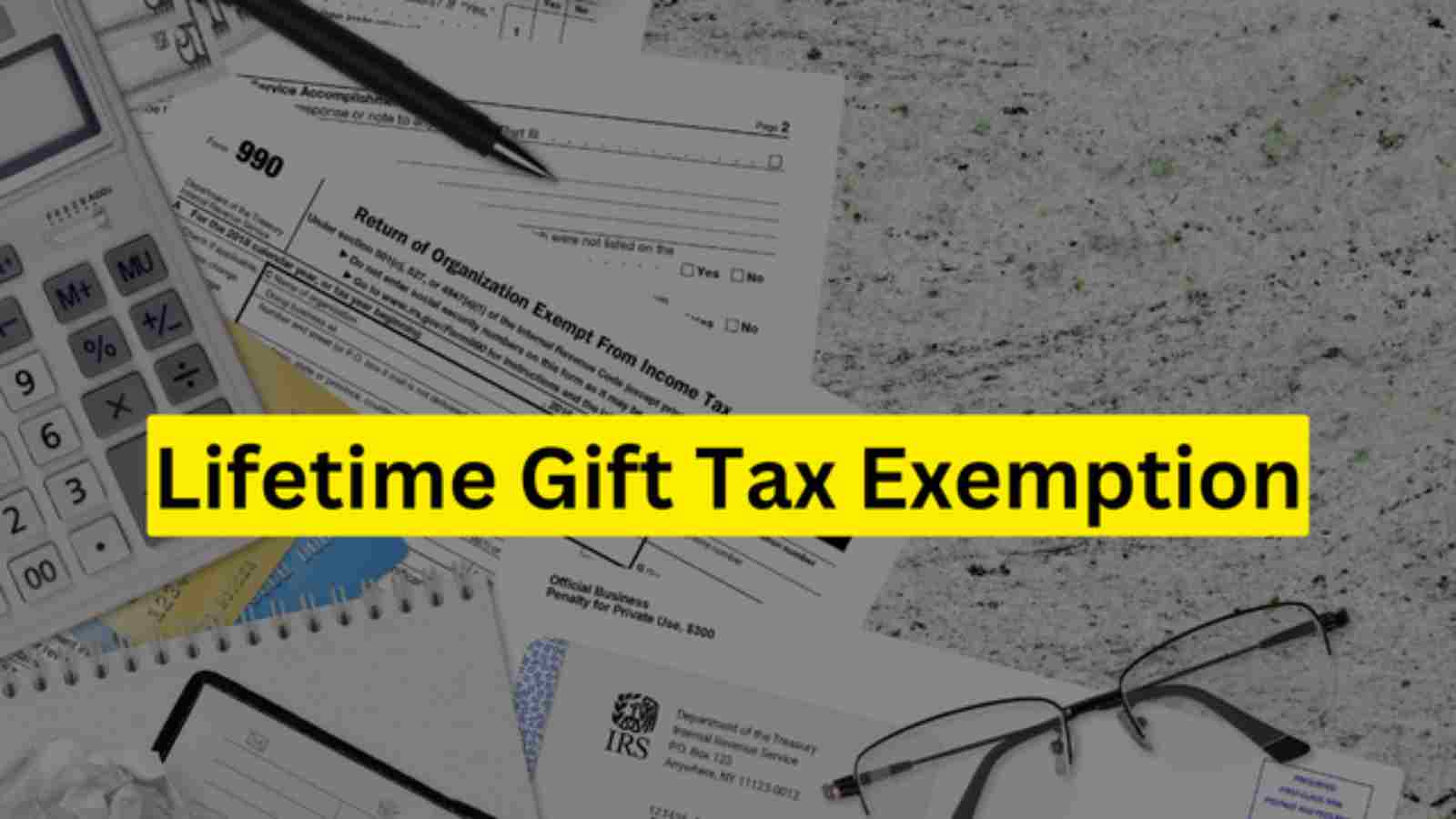Lifetime Gift Tax Exemption 2023: When a person gives money or property to a recipient who is not their spouse or dependent, they may be required to pay gift tax. This federal tax begins at 18% and can reach 40% on certain gift quantities. In 2023, gifts exceeding the annual limit of $17,000 are not automatically subject to the gift tax. In addition, for Lifetime Gift Tax Exemption 2023, the IRS permits a person to transfer up to $12.92 million in assets or property during their lifetime and/or as part of their estate.
Lifetime Gift Tax Exemption 2023
When property or money is given to another individual without receiving something of equal or greater value in exchange, the gift tax is applied. Due to numerous essential Internal Revenue Service regulations, the majority of Americans will never pay gift taxes, despite how burdensome it may appear. If a gift exceeds the annual exclusion limit, no taxes are due because the excess is deducted from the recipient’s Lifetime Gift Tax Exemption 2023 limit.
Consider the following example for the tax year of 2023: A grandmother chooses to present her granddaughter with a $30,000 automobile for her college commencement. Grandma’s gifts would technically exceed the $17,000 annual exclusion limit per gift, but she would not be subject to additional taxes. This is because she would report the gift to the IRS using Form 709 and deduct $13,000 from her $12.92 million Lifetime Gift Tax Exemption 2023. Therefore, she could donate up to $12,079,000 tax-free.
A Guide to the 2023 Child Tax Credit – Eligibility and Claims
How Does the IRS Calculate the Gift Tax?
- Determine the gift’s acceptable market value.
- Use the annual exclusion from gift tax ($17,000 per recipient in 2023).
- To calculate the taxable value of a gift, deduct the annual exclusion.
- Add the taxable gift for the current year to any prior taxable donations.
- Apply the lifetime exclusion from gift tax ($12.92 million per person in 2023).
- If the cumulative amount of taxable gifts exceeds the lifetime exclusion, apply a gift tax rate between 18% and 40%.
- File a Form 709 with the IRS, even if no gift tax is due.
- Tax experts can perform calculations and provide advice.
Lifetime Gift Tax Exemption 2023 Planning Suggestions
- Familiarise yourself with the lifetime gift tax exemption for 2023, which is $12.92 million per individual and $25.84 million per married couple.
- Donate assets with the potential for appreciation to maximise the exemption.
- Family limited partnerships (FLPs) are capable of transferring and managing assets.
- ILITs may exclude life insurance proceeds from an individual’s estate.
- Donate to qualified charities to take advantage of the everlasting gift tax exemption.
- To optimise the exemption, research trusts such as GRATs and QPRTs.
- Consult with estate planning or tax experts to devise a strategy that meets your needs.
What is the Limit on Tax-Free Gifts for 2023?
In 2023, the limit on tax-free gifts (gift tax exclusion) is $17,000, up from $16,000 in 2022. In 2023, you will not be required to pay the federal gift tax on gifts of up to $17,000 sent to as many beneficiaries as you desire. Additionally, if you are married, your spouse may also bequeath $17,000 to the same beneficiaries. You and your spouse will pay $34,000 each in 2023. If you remain within the annual gift tax limit for each beneficiary, you can avoid filing gift tax returns.
What If the Annual Gift Limits Are Exceeded?
If you give someone more than $17,000 in 2023 and no exemption applies, you must file a federal gift tax return (IRS Form 709). However, you may not necessarily incur any taxes as a result. In addition, there is a lifetime gift tax exclusion that may protect your gifts from being taxed. Due to the generous exemption amount, the vast majority of individuals are never required to pay any gift tax.
In 2026, the lifetime gift tax exclusion will be halved. The 2026 lifetime cap is set at $6,8 million. It is unlikely that Congress will approve the current amount permanently. Fortunately, IRS regulations permit the use of either the lifetime gift tax exclusion applicable at the time the gifts were made or the exclusion amount applicable at the time the donor died, whichever is greater. Therefore, substantial gifts made prior to 2026 are not at risk of losing the higher gift tax exclusion amount if it is repealed.



